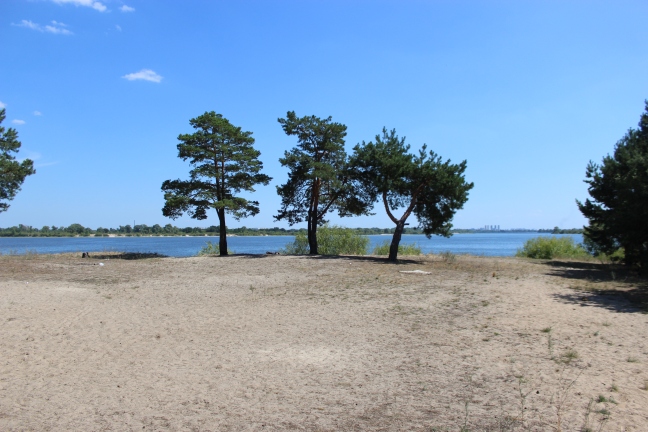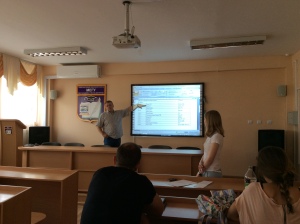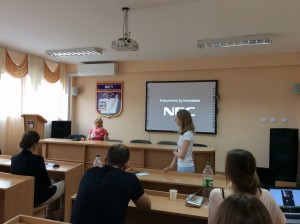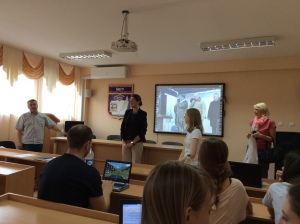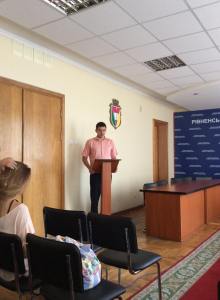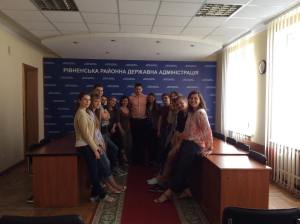During their research trips in Mykolaiv and Rivne, the participants of the Summer School were quite busy collecting material for their journalistic pieces. They met, interviewed and portrayed a variety of people, ranging from students and radio moderators, via LGBT-activists, IDPs, fighters from voluntary battalions to musical Cossacks and businesswoman.
Back in Kyiv, it was all about finalizing the pieces under the guidance of the experts of the Mohyla School of Journalism.
During the time of writing, the group had the chance to visit UT Ukraine Today TV channel. “Ukraine’s first international TV news network” was founded as a reaction to the Kremlin-steered channel Russia Today and broadcasts news around Ukraine-related issues in English language.
Another visit led to the 9/11 Frolivska Volunteer Run Humanitarian Aid Center for the Refugees from the War Zone right in the heart of Kyivs Podil district. It was very touching to see the variety of help that is provided by volunteers, while the state still doesn´t have the capacities (or the will) to coordinate the support for IDPs who fled from the war zone in the east of the country. One group spend the whole day there as a part of their research for an article about Ukrainian IDPs.
Not only that every group was able to complete their pieces within the pressing deadline (Sunday evening 20:00 pm), which can be considered a realistic foretaste for the upcoming daily struggle for those who are going to work as journalists, but their submissions were also of a very high quality and have good chances to be published in prominent journalistic outlets. Hence, the individual presentations of the projects on the following day took place in a constructive and rewarding atmosphere.
The official last part of the Summer School ended with a wrap up and get-together in the honorable hall of the old part of the Kyiv-Mohyla-Academy. Larysa Chovnyuk invited the participants to come back to Kyiv and to visit KMA. They will be always welcome here!
The participants had the rest of the day off – time to relax and to prepare for the very last part of the Summer School: a boat trip with a barbeque on one of the Dnepr-islands. The grilled food was tasty, the wine was cold, and the water of the river refreshing – after the participants finally had overcome their resentments against the water quality: YOLO.
That also seemed to be the motto of the massive wasp brigades populating the island. Their aggressive stance against those who they perceived as intruders seemed to stem from the fear that never again in their live they will be able to attack the tanned and sun-creamed skin of a human being.
Various remains of people proved that fear wrong. Maybe exactly these burned mattresses and uncontrolled dump sides are the true reason for their aggressive behavior. In this sense, our efforts to keep the site clean might contribute to a more positive connotation of a term that one of the participants heard during the study trip and that resembles rather negative historical feelings: «Немцы в городе!»
It was an amazing time with lots of stimulating (and controversial) discussions. Thank all of you very much and see you somewhere in Ukraine!

